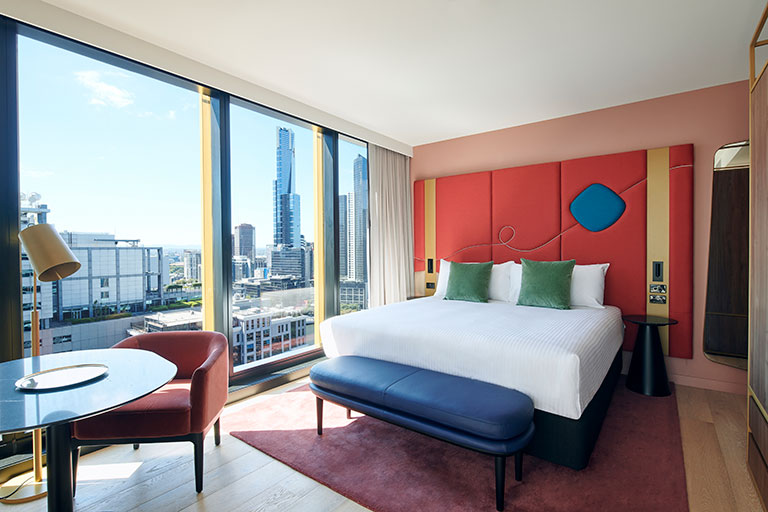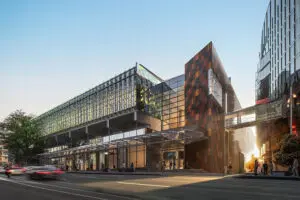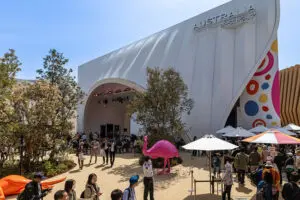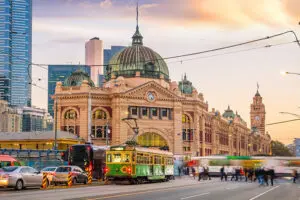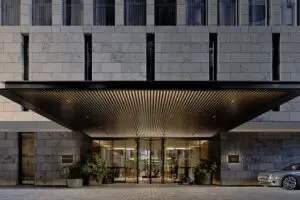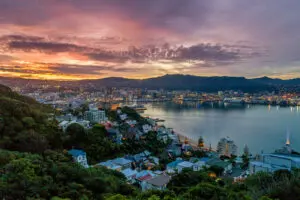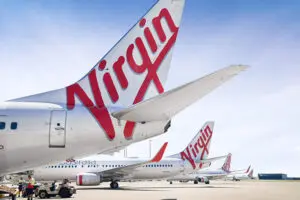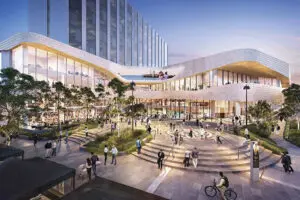Understanding that it has to measure what it wants to manage, the hotel group has spent the last few years developing its greenhouse gas monitoring, measurement and reporting processes, in addition to developing its sustainability strategy.
The 241-room hotel at the Spencer Street end of Flinders Lane in Melbourne’s CBD, not far from the convention centre, opened in 2021 and has become TFE Hotels’ “poster child” for carbon neutrality. Quincy Melbourne is the first hotel in Australia to be certified carbon neutral by Climate Active and NABERS.
Quincy Melbourne is currently using offsets to reduce its net carbon emissions to zero while it looks at how it can further reduce its carbon output operationally.
The hotel is currently paying to offset the equivalent of 167 households’ worth of carbon emissions each year.
“I’m all about doing things that move the needle and maximising our strengths,” said Quincy Melbourne’s general manager, Andrew Edwards.
“Whilst the temptation early on was to rush out and purchase bamboo key cards or remove every bit of plastic from our hotel rooms, we know that in order to be sustainable and achieve operational carbon emissions reductions we needed robust data to inform our activities, refocusing on initiatives that directly impact our carbon footprint such as lighting, heating, cooling, hot water and all physical items consumed.
“In just a short time, we’ve made some inroads and, in addition to investing in NABERS certification, looking at green power, carbon offsetting and initiatives that relate to greenhouse gas emissions, water, waste and energy, we’re also looking at purchasing decisions and our supply chain; exploring options to partner with clients and guests to educate them about making more sustainable choices; and exploring how we can offset corporate travel and meals.
The hotel is even considering the power of room allocations.
“Whilst smart technology with in-room senses for light and air-conditioning is nothing new in hotels, we are quite strict on our room allocations which allows us, during quieter periods, to have whole floors offline from a power usage perspective,” said Edwards.
Across its broader portfolio, TFE Hotels is creating green teams and working groups to establish local sustainability initiatives in each region in which it operates. And for individual properties, the group’s carbon management system records data on things like waste streams and water usage, providing metrics based on absolutes as well as measuring by the number of rooms occupied and the number of visitors.
“Hoteliers have a responsibility to play a part in mitigating climate change and supporting the sustainable development of the hospitality sector to create a greener tomorrow,” said TFE Hotels’ group chief operating officer, Chris Sedgwick.
“By monitoring Scope 1, 2 and 3 emissions, our individual hotels, regions and ownership groups can identify the activities which generate the most GHG emissions to assist in identifying initiatives that will provide real emissions savings.
“Like all hotels in our network, Team Quincy is committed to internal benchmarking and the continuous evaluation of business operations.
“Our Climate Metric and Targets Dashboard and reporting tools provide the team with the support needed to review performance based on actual data, benchmark performance against peers, to set achievable goals and to monitor progress towards those goals.”




